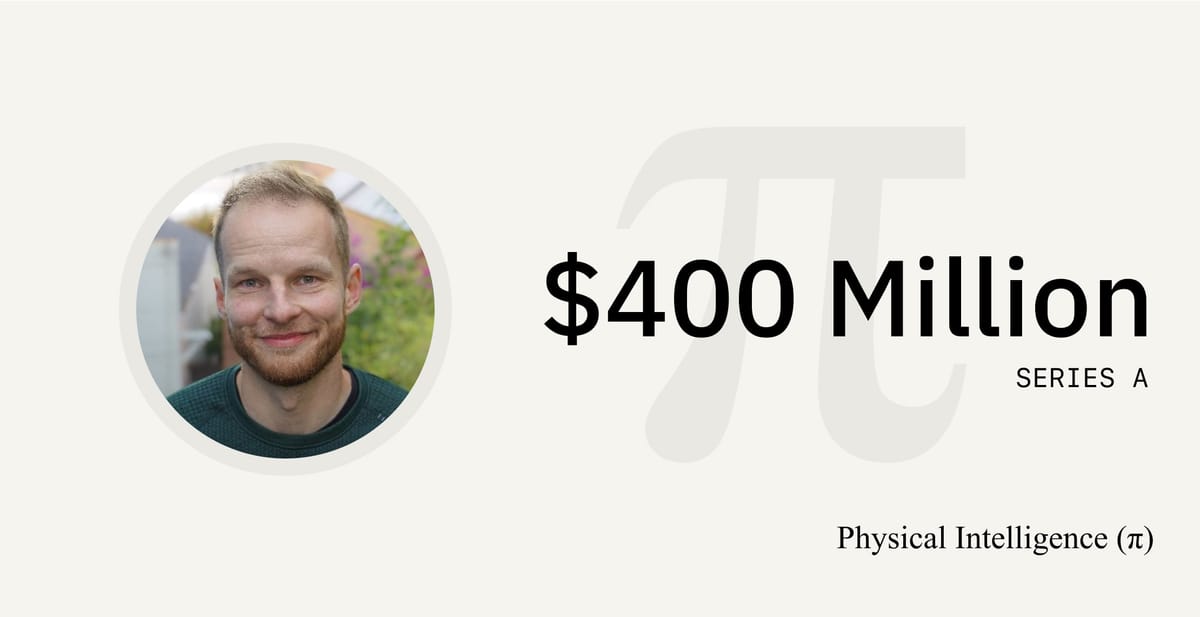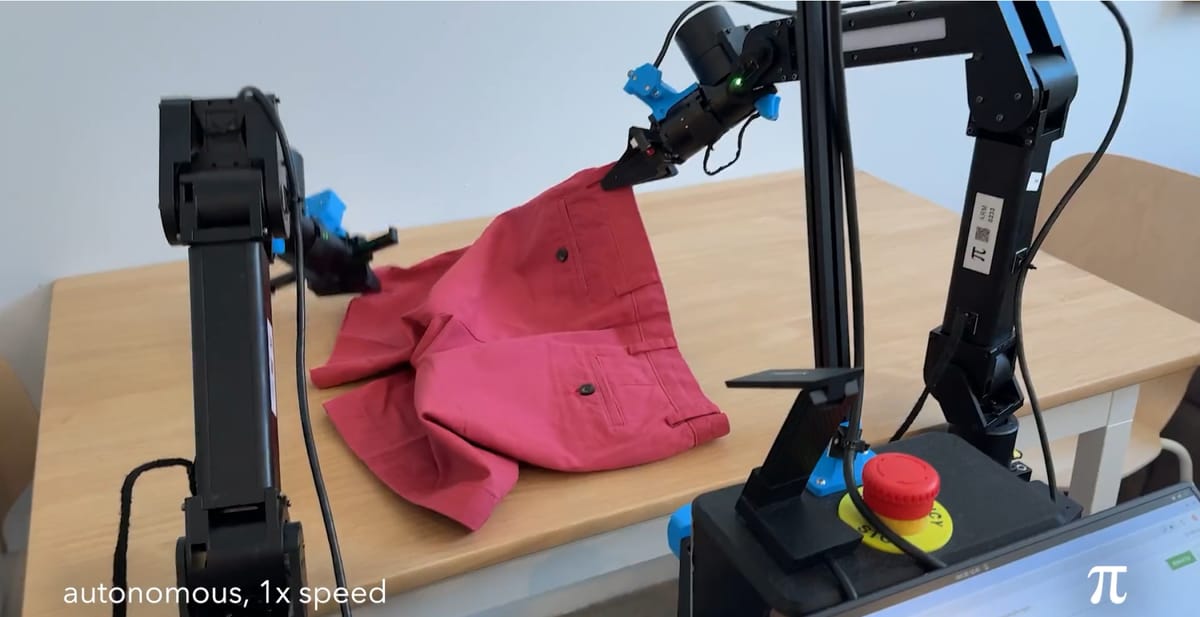
Physical Intelligence has secured $400 million in funding to develop AI software that can control any robot, marking one of the largest investments in robotics AI this year. The round values the San Francisco startup at $2 billion and brings together an influential group of tech investors including Jeff Bezos, Thrive Capital, Lux Capital, and OpenAI.
The company's flagship technology, π₀ (pi-zero), takes a unique approach to robot control. Instead of creating specialized software for specific robots and tasks, Physical Intelligence is building what CEO Karol Hausman calls "a single generalist brain" that can work across different robotic platforms.

"What we're doing is not just a brain for any particular robot," says Hausman, who previously worked as a robotics scientist at Google. "It's a single generalist brain that can control any robot."
The company has already demonstrated π₀'s capabilities in handling everyday tasks like folding laundry, clearing tables, and flattening boxes. However, Physical Intelligence executives compare their current technology to GPT-1, OpenAI's first language model, suggesting they're still in the early stages of development.
The investment comes amid renewed interest in robotics AI, with several startups securing major funding this year. Figure AI raised $675 million in February, while Skild secured $300 million in July. These investments signal growing confidence in AI's potential to solve long-standing challenges in robotics, despite the industry's history of setbacks.
The funding represents a dramatic increase from the company's $70 million seed round raised earlier this year. Other investors in this round include Redpoint Ventures and Bond, highlighting the strong interest in companies working to bridge the gap between artificial intelligence and physical automation.
The race to develop capable robot AI systems continues to intensify, with companies like Amazon and Tesla making significant investments in the field. As Physical Intelligence works to advance π₀, the success of their universal approach could reshape how robots are programmed and deployed across industries.


